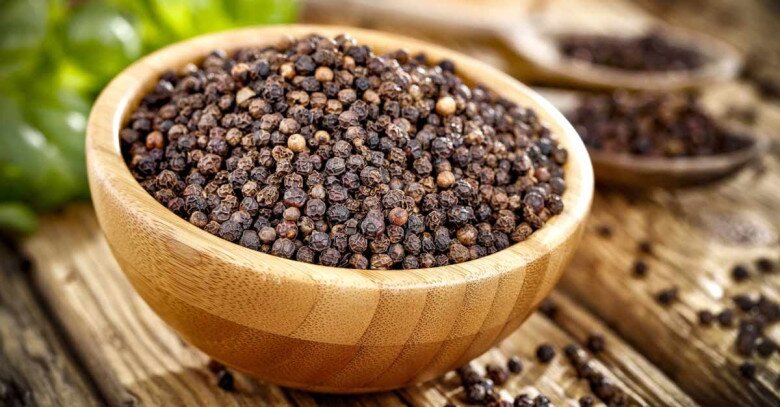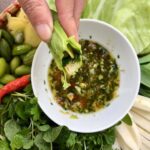Black pepper, a familiar spice in Vietnam, is often underutilized due to misconceptions about its effects on health. However, experts refute these claims, highlighting its medicinal properties and potential benefits when consumed appropriately.

Black pepper, despite its numerous benefits, is used sparingly in Vietnam, mostly as a seasoning.
Eastern medicine practitioner, Mr. Bui Dac Sang, from Hanoi’s Oriental Medicine Association, shares that black pepper has a pungent and hot nature, associated with the stomach and large intestine meridians. It aids in digestion, relieves pain, prevents vomiting, and treats abdominal pain caused by cold and indigestion.
Additionally, black pepper exhibits antiseptic and antiparasitic properties. Its aroma repels insects, making it useful for protecting woolen clothes from moth damage. Notably, studies indicate that black pepper, abundant in Vietnam, possesses anticancer properties and helps regulate blood pressure and burn excess fat.
The piperine in black pepper is key to its health benefits. It acts as a powerful antioxidant, safeguarding cells from free radical damage. Piperine also reduces inflammation in the body, a factor linked to cardiovascular disease, thereby offering cardiac protection.
Research further suggests that piperine can lower bad cholesterol (LDL) and triglyceride levels while elevating good cholesterol (HDL) levels, positively impacting cardiovascular health by mitigating the risk of atherosclerosis and other heart ailments.
Beyond piperine, black pepper is rich in other antioxidants like vitamin C, flavonoids, and carotenoids, which protect nerve cells from free radical damage. Consuming black pepper may also enhance blood flow to the brain, ensuring adequate oxygen and nutrient supply for optimal brain function.

Black pepper is a versatile spice with medicinal properties, including cancer prevention.
“Black pepper is abundant in Vietnam and is exported worldwide, yet it’s unfortunate that Vietnamese people rarely use it. Most often, it is used as a condiment for dipping sauces or certain dishes, and even less frequently than monosodium glutamate and sugar, despite its superior benefits,” said Mr. Sang.
Mr. Sang recommends combining black pepper with other foods or medicinal herbs to maximize its health benefits rather than solely using it as a seasoning. He suggests consuming 2-4 grams of black pepper, either brewed as a tea or ground into a powder and encapsulated, to treat abdominal pain caused by cold or indigestion.
Alternatively, black pepper can be used to alleviate toothaches. Equal parts black pepper and bat powder can be ground, mixed with beeswax, and formed into small pellets. Place one pellet in the affected area to alleviate pain. “Since black pepper has a pungent and hot nature, it is advisable to consult a specialist before using it as a medicine to avoid any adverse effects,” Mr. Sang cautioned.
Individuals with irritable bowel syndrome, hemorrhoids, or pregnant women should exercise caution when using black pepper to prevent internal heat, constipation, or irritation, which may increase the risk of bleeding in hemorrhoid patients.





































